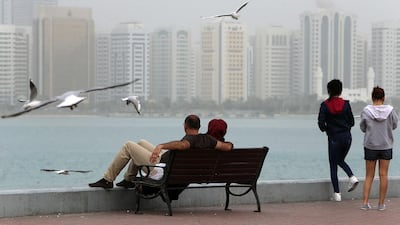I am thinking about investing in a property in Abu Dhabi, but am not sure which area I should be looking at for the best return on my investment. I know I am limited to certain developments such as Yas Island, Reem Island and Sadiyaat Island. But are there any other areas I should be looking at?
If I buy a villa or townhouse, does that mean I also own the land that the property has been built on? Or, are there restrictions on this for expatriate property investors? I remember reading an article about the length of ownership – does it mean that a property cannot be owned by a person/family for more than 99 years? Is this a similar law to the 99-year property lease in the UK? MW, Abu Dhabi
Real estate transactions in Abu Dhabi have been steadily rising this year despite the Covid-19 situation. There are many reasons for this, but mainly due to reduced property prices in the secondary market and softening of lending criteria for mortgages, which now stand at 80 per cent loan-to-value for expats and 85 per cent for Emiratis. Interest rates have also reduced, making it attractive to buy property with a mortgage.
In the primary market, developers are offering excellent options and payment plans, with some featuring long post-handover options, too. All of this has garnered interest from local and international buyers to tap the Abu Dhabi property market.
The nationality of the buyer will determine where to buy property in Abu Dhabi. For UAE or GCC nationals, all areas of the capital are open to purchase, including on main Abu Dhabi island. For expatriates, the only areas available to purchase property are the ones you mentioned before.
In terms of total sales, the most popular area this year has been Al Reem Island, followed by Saadiyat Island, Al Reef and Al Yas. Another popular area for residents who do not mind the commute to Abu Dhabi and also want to be near the Dubai border is Al Ghadeer by Aldar. This project comprises low-rise residential buildings and villas.
Other areas you could consider are parts of Al Samha such as Al Reef 2 by Manazel, which is 25 minutes from Abu Dhabi International Airport and 20 minutes from Yas Island.
When you buy a property in these designated areas, you will own the property and the land it is built upon. This is known as freehold ownership. In April 2019, the law was changed to allow foreign investors to buy freehold real estate in designated free zones in the capital for the first time. Prior to this, they were only permitted to own properties on a leasehold basis for up to 99 years.
Leasehold ownership means that the investor owns the property, but not the land it is built upon, for a period of up to 99 years, after which everything goes back to the freeholder. Freehold means that the investor owns the property and the land that it is built upon. This is now the case in the designated areas mentioned above.
Mario Volpi is the sales and leasing manager at Engel & Volkers. He has worked in the property sector for more than 35 years in London and Dubai. The opinions expressed do not constitute legal advice and are provided for information only. Please send any questions to mario.volpi@engelvoelkers.com

